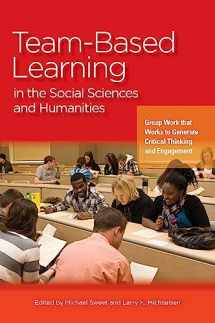
Team-Based Learning in the Social Sciences and Humanities
Book details
Summary
Description
Team-Based Learning (TBL) is a unique, powerful, and proven form of small-group learning that is being increasingly adopted in higher education. Teachers who use TBL report high levels of engagement, critical thinking, and retention among their students. TBL has been used successfully in both small and large classes, in computer-supported and online classes; and because it is group work that works, it has been implemented in nearly every discipline and in countries around the world.
This book introduces the elements of TBL and how to apply them in the social sciences and humanities. It describes the four essential elements of TBL – readiness assurance, design of application exercises, permanent teams, peer evaluation – and pays particular attention to the specification of learning outcomes, which can be a unique challenge in these fields.
The core of the book consists of examples of how TBL has been incorporated into the cultures of disciplines as varied as economics, education, literature, politics, psychology, and theatre. The authors explain why they felt a need to change how they taught and why they chose TBL. Furthermore, each chapter provides examples of the assignments and exercises they use to help their students achieve the specific learning outcomes of their courses.
At a time of increasing course sizes, and emphasis on learning outcomes, TBL offers the means to meet such demands while connecting students to their coursework, and stimulating their intellectual engagement.


We would LOVE it if you could help us and other readers by reviewing the book
Book review



